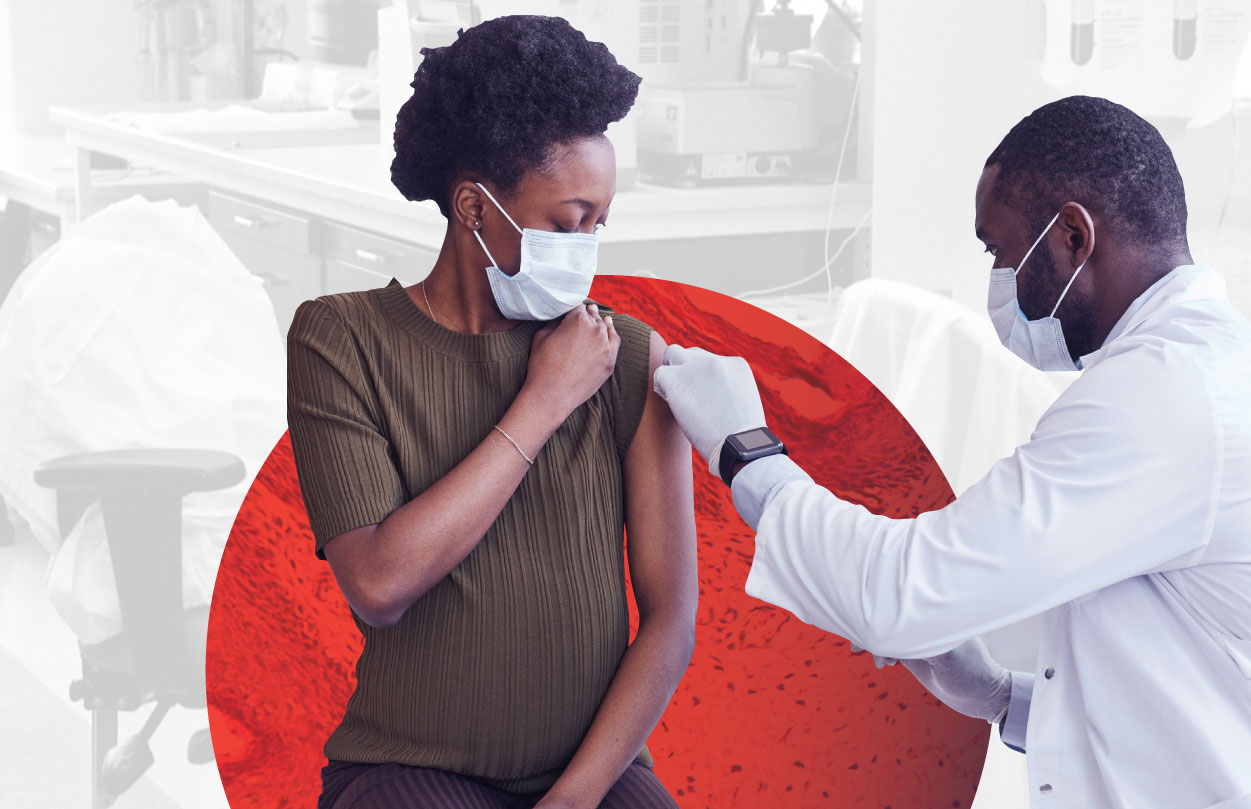![]()
Paving a Path for Cancer Vaccines
…Melanoma Research Alliance has been instrumental in supporting all of these initial studies and allowing us to progress them forward into vaccines in the clinic.”
DR. NINA BHARDWAJ

One such innovator helping pave the way is Dr. Nina Bhardwaj, Director of Immunotherapy at The Tisch Cancer Institute, Icahn School of Medicine at Mount Sinai and Professor of Hematology and Oncology.
Although vaccines to prevent COVID-19 have dominated conversations and the news cycle since the start of the pandemic — Bhardwaj and her team have been busy at work with a different type of vaccine altogether: one to support melanoma treatment and reduce risk of recurrence.
“There are two types of vaccines,” explains Bhardwaj. “There are prevention vaccines and therapeutic vaccines.” Prevention vaccines are designed to prevent people from becoming infected with or facing serious illness from a particular pathogen. As it relates to cancer, these exist for HPV and hepatitis B. Recent COVID-19 vaccines are another example of prevention vaccines. Therapeutic vaccines, however, are given when someone has already been diagnosed with cancer; the vaccine helps boosts the immune system in order to better attack cancer cells or to prevent the recurrence of cancer.
Cancer Vaccines to Prevent Melanoma Recurrence
Bhardwaj and other researchers are studying if therapeutic vaccines could be used to prevent relapse following surgery, in what is called adjuvant therapy. The vaccines could help the immune system eliminate any micro-metastatic disease that might be remaining, but otherwise not detectible via scans.
Researchers hope that this would also help prime the immune system so that should the cancer recur, the patient has some reasonable immunity to the cancer antigens.
Although cancer vaccines have shown some efficacy on their own, the latest research suggests that they become much more potent in their cancer-fighting abilities when combined with other, more established, immunotherapies. In a recent study that Bhardwaj and her team conducted, they found that adding immunotherapies to vaccines to mobilize antigen-presenting cells (key for initiating an immune response) made the vaccines twice as effective.¹
Simplistically, vaccines work by training the immune system to rapidly respond to a foreign invader. To do this, certain protein fragments — called antigens — must be introduced into the body to trigger an immune response.
When it comes to the flu, measles, shingles, or even COVID-19 the concept of a “foreign invader” makes sense. Vaccines introduce small molecular snippets from the virus. These snippets, completely harmless on their own, are enough to teach our immune system how to fight the full-fledged virus should you become exposed to it.
However, if instead you focus on cancer vaccines, this quickly becomes more complicated. That’s because cancer develops within our own cells — so not only do these vaccines need to work, they also need to be able to differentiate between healthy and cancerous cells. Despite the challenge, researchers including Dr. Bhardwaj are confident that vaccines have a place at the table in the fight against melanoma and other cancers.
Bhardwaj and her team are investigating “one-size-fits-all” melanoma vaccines that would introduce antigens found in all or most melanomas. They are also working on personalized vaccines based on antigens found in a specific patient’s tumor. She says she’s cautiously optimistic of what the cancer vaccine future looks like, particularly because researchers are able to stimulate the immune system in ways they never could before and in combinations with immunotherapy that make such approaches more effective than ever.
In addition to identifying the right antigens to include in a melanoma vaccine, researchers must also select the right delivery mechanism — what they call a “vaccine platform.” For example, the flu shot uses viral fragments or inactivated virus, the measles vaccine uses a weakened version of the virus, and the shingles vaccine uses part of the virus to train the immune system.
Examples of MRA-Funded Vaccine Research
MRA has funded several high-impact grants focused on vaccines, including:
Humanized Melanoma Mouse Models for Translational Assessment
of Neoantigen-Based Vaccines
Icahn-MRA Team Science Award
Nina Bhardwaj, MD, PhD — Icahn School of Medicine at Mount Sinai
Next-generation neoantigen-targeting peptide vaccines for melanoma patients
BJ’s Wholesale Club-MRA Team Science Award
Patrick A Ott, MD — Dana-Farber Cancer Institute
Novel approaches for immunotherapy against melanoma
Sotheby’s-MRA Young Investigator Award
James Moon, PhD — University of Michigan
“Smart” nanoparticles for immunotherapeutic targeting of the STING pathway
Leveraged Finance Fights Melanoma-MRA Young Investigator Award
John Wilson, PhD — Vanderbilt University

One platform that researchers have been studying for decades for the delivery of vaccines is Messenger RNA (mRNA). This technology made its mainstream debut in several of the COVID-19 vaccines, such as those by Pfizer-BioNTech and Moderna, who are now pursuing this platform in many cancers. Bhardwaj is planning the same delivery mechanism for her work to develop a melanoma vaccine.
“We want our vaccine to create a super immune response,” says Bhardwaj. “These RNA platforms are inducing high-quality immunity; so, we’ll have to see whether or not in combination with checkpoint inhibitors if they will give us the kind of impact that we want and further improve response rates. This is a very exciting area to study right now.”
Bhardwaj and her team have developed computer algorithms to help identify which antigens should be included in a vaccine candidate. They have also examined what model systems are best suited to study experimental vaccines before first-in-human clinical trials. A recent clinical study — led by Bhardwaj — compared formulations of a “one-size-fits-all” vaccine for melanoma to identify the formulation that elicits the best anti-tumor immune response. This research is not only advancing the field for patients facing melanoma, but those with other cancers.
“With a better understanding of the patient’s antigen repertoire and all the technology that has come out, plus the ability to monitor a response so carefully and individually is incredible,” says Bhardwaj. “For me, the Melanoma Research Alliance has been instrumental in supporting all of these initial studies and allowing us to progress them forward into vaccines in the clinic. It’s exciting that we can consider in the future what we haven’t been able to before. I think the field has advanced tremendously and I’m very hopeful.”
¹Mount Sinai. Mount Sinai Researchers Discover How to Boost Efficacy of Vaccine Designed to Prevent Melanoma Recurrence. November 16, 2020. Available at: www.mountsinai.org/about/newsroom/2020/mount-sinai-researchers-discover-how-to-boost-efficacy-of-vaccine-designed-to-prevent-melanoma-recurrence-pr